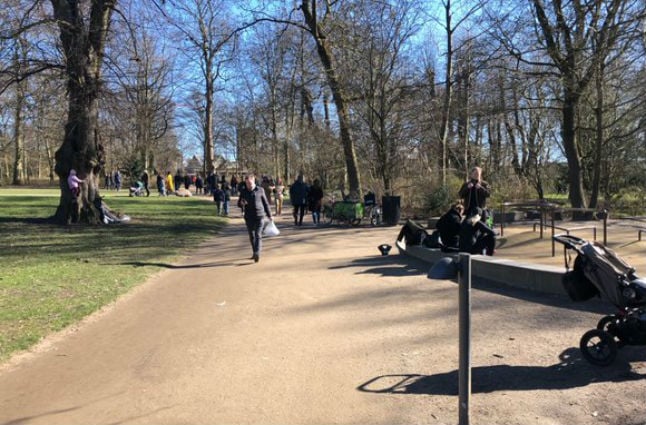Frederiksberg Have havde heller ikke fået memoet ? pic.twitter.com/JKVE0Cvhm9
— Anne Hauge (@AnneHauge) March 14, 2020

Despite the Danish government's bold measures to slow the spread of coronavirus, readers of The Local complain that many people, especially young people, are treating the lockdown as a holiday. Is it time to enforce social distancing?

Frederiksberg Have havde heller ikke fået memoet ? pic.twitter.com/JKVE0Cvhm9
— Anne Hauge (@AnneHauge) March 14, 2020

Member comments